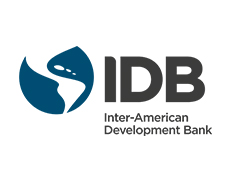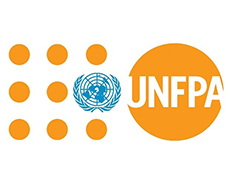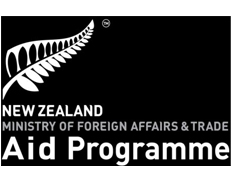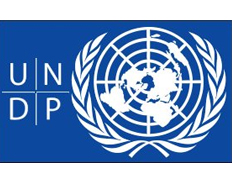
Investment Plan for the Caribbean Regional Track of the Pilot Program for Climate Resilience: LIDAR (Topographic and Bathymetric) Surveys Scoping and Monitoring Consultancy
Details
Associated tenders • 0
Status
Date
Description
Borrower/Bid No: CF01/C1.00-1
Request for Expressions of Interest for Consulting Services
Institution: The University of the West Indies, Mona
Country: Jamaica
Project: Investment Plan for the Caribbean Regional Track of the Pilot Program for Climate Resilience
Sector: Environment and Natural Disasters - Climate Change Adaptation Policy
Abstract: LIDAR (Topographic and Bathymetric) Surveys Scoping and Monitoring Consultancy
Grant No.: ATN/SX-14969-RG
Bid No.: CF01/C1.00-1
Deadline: 27 October 2016
The Inter-American Development Bank (IDB) has provided grant funding to implement the Investment Plan for the Caribbean Regional Track of the Pilot Program for Climate Resilience (PPCR) over a five-year period. The program is being executed by the University of the West Indies, Mona (UWI), through its Mona Office for Research and Innovation (MORI), and will be co-implemented by regional organizations working on climate change in the region. The UWI, Mona intends to apply part of the proceeds for consulting services.
The consulting services (“the Services”) are expected to be implemented over 21 months beginning December 2016 and include, inter alia:
- Assisting Caribbean PPCR countries with the selection of suitable survey sites through the development and use of a clear site selection and ranking criteria.
- Evaluating options for the conduct of the topographic and bathymetric surveys (LIDAR) and identifying the best technical requirements and most time- and cost-effective approaches in conducting the required surveys.
- Developing a detailed Terms of Reference for the consultancy which will execute the LIDAR to include the specifications for data acquisition and spatial reference framework, among others.
- Leading the monitoring, evaluation and supervision of the LIDAR consultancy to ensure the delivery of quality products.
- Collaborating with the relevant National Entities to decide on priority vulnerable sites for the utilization of new topographic and bathymetric data in conducting new Land Use Mapping, Coastal Zone Planning and Adaptation Planning.
- Liaising with all National Entities and multilaterals to determine the extent of recently funded or conducted survey activities in the region for topographic and bathymetric data (e.g. World Bank).
- Consulting with the regional climate modelers, PPCR co-implementing entities and other intended recipients of the data to define the required formats and resolutions needed.
The Mona Office for Research and Innovation now invites eligible consulting firms (“Consultants”) to indicate their interest in providing the Services. Interested Consultants should submit an Expression of Interest providing information demonstrating that they have the required qualifications and relevant experience to perform the Services. Expressions should also include appropriate references to similar assignments undertaken. For full details, refer to the Terms of Reference attached.
Expressions shall be submitted in English language and all correspondence exchange shall be in English. Consultants may associate with other firms in the form of a joint venture or a sub-consultancy to enhance their qualifications. For the purpose of establishing the short list, the nationality of a firm is that of the country in which it is legally incorporated or constituted and in the case of Joint Venture, the nationality of the firm appointed to represent it. The short list may comprise entirely national consultants.
A Consultant will be selected in accordance with the Selection Based on the Consultants’ Qualifications method in accordance with the procedures set out in the Inter-American Development Bank: Policies for the Selection and Contracting of Consultants financed by the Inter-American Development Bank GN-2350-9 and is open to all eligible bidders as defined in the policies.
Clarifications and further information may be requested no later than 7 days prior to the submission deadline, at the address below during office hours 9 a.m. to 4 p.m.
Expressions of interest must be delivered in a written form to the address below (in person, or by mail, or by e-mail) by 27 October 2016.
Mona Office for Research and Innovation
Attn: Erica Haughton- Procurement Officer
First Floor, Assembly Hall Building
The University of the West Indies
Tel: 1-876-970-3175 ● 1-876-935-8192
E-mail: erica.haughton02@uwimona.edu.jm
TERMS OF REFERENCE
LIDAR (TOPOGRAPHIC AND BATHYMETRIC) SURVEYS SCOPING AND MONITORING CONSULTANCY
- GENERAL INFORMATION:
1.1. The Mona Office for Research and Innovation (MORI) as the executing entity for the Investment Plan for the Caribbean Regional Track of the Pilot Program for Climate Resilience (PPCR) is seeking to strengthen capacities at the National levels to integrate climate resilience into Development Planning under Component 1 of the PPCR through the collection of improved near-shore/coastal Topographic and Bathymetric Data. To this end, a LIDAR (Topographic and Bathymetric) Survey Scoping and Monitoring Consultant is required.
- PROJECT BACKGROUND:
2.1. The Pilot Program for Climate Resilience (PPCR) was designed under the Strategic Climate Fund (SCF), in response to the urgent need to scale up investments in climate risk and resilience measures for highly vulnerable countries and to pilot and demonstrate ways to integrate climate risk and resilience into their core development planning. The PPCR is intended to support the mainstreaming of climate risk resilience in the development policies and strategies of developing countries mainly through the following:
- a) Piloting and demonstration of approaches for the integration of climate risk and resilience into development policies and planning;
- b) Strengthening of capacities at the national levels to integrate climate resilience into development planning;
- c) Scaling-up and leveraging of climate resilient investment, building upon other ongoing initiatives;
- d) Enabling learning by doing and lesson sharing at the country, regional and global levels; and;
- e) Strengthening cooperation and capacity at the regional level to integrate climate resilience in national and appropriate regional development planning and processes.
2.2. The Caribbean Pilot consists of a regional approach that proceeds along two closely linked and complementary tracks:
- National PPCR – Country based investments in six highly vulnerable nations – Commonwealth of Dominica, Grenada, Haiti, Jamaica, Saint Lucia, and Saint Vincent and the Grenadines;
- Regional PPCR – Region-wide activities including data management and monitoring for improving understanding of climate risks and potential impacts, as necessary to take actions to enhance climate resilience, coupled with activities to tackle risks and vulnerabilities common to all Caribbean countries.
Each of these countries has a national program of activities which is outlined in a Strategic Program for Climate Resilience (SPCR). The regional track of activities is also defined in a Caribbean Regional SPCR. The Investment Plan for Caribbean Regional Track of the PPCR arose from this and is designed to work through key entities in the Caribbean region to provide the scientific analysis so that countries can incorporate climate resilience into their national climate change strategies as well as in regional planning strategies, policies and financing mechanisms. The two tracks (national and regional) will thus be synergistic – the regional activities will supplement and strengthen the country-led programs and activities and also extend public good benefits and lessons learned from the pilot program to all Caribbean Community (CARICOM) member countries.
2.3. As an activity under Component I: “Improving Geospatial Data and Management for Adaptation Planning, Sea Level Rise and Storm Surge Impact Analysis” the PPCR will, through the most cost effective methods, engage the services of specialized consulting firms in order to acquire needed coastal/near-shore topography and bathymetry data for selected highly vulnerable locations in four (4) PPCR countries; Jamaica, Grenada, St. Vincent & the Grenadines, and Haiti (bathymetry only). This will support the objective of acquiring additional scientific information which will be converted into tools to support adaption planning.
2.4. The consulting firm will identify the most cost effective methods for acquiring the needed coastal/near-shore topography and bathymetry data. Additionally, the Consultant will identify criteria for site selection for surveys to include but not necessarily be limited to areas with high climate change vulnerabilities and specifically:
(a) High population density, critical infrastructure and high natural vulnerability;
(b) High priority areas within government policy and programs
- Projects in pipeline for investment
- Projects underway for adaptation
(c) Data available is sparse but in demand for decision making
2.5. This scoping assessment will also identify and utilize new geospatial outputs by Caribbean institutions working in climate change for example, Hazard maps by the Caribbean Institute for Meteorology and Hydrology (CIMH), Caribbean Disaster Emergency Management Agency (CDEMA) and others. Through dialogue with the respective national authorities, the Consultant will provide clear indications as to how the proposed surveys will support their ongoing national PPCR programs, climate analysis and adaptation planning.
2.6. It is anticipated that data acquisition and processing may extend up to a 24 month period, from scoping of survey locations to actual surveying and analysis of the data obtained.
- OBJECTIVES OF THE ASSIGNMENT:
3.1. The main objectives of the assignment are:
- a) Assist the PPCR Countries with the selection of Suitable Survey sites based on the selection criteria developed.
- b) Evaluate options for the conduct of the survey and identify the best technical requirements and most time and cost effective approach in conducting the required surveys.
- c) Develop detailed Terms of Reference (ToR) for the Consultancy to execute the LIDAR (Topographic and Bathymetric) Surveys to include the specifications for the high resolution maps (coastal topography and bathymetry) and Digital Terrain Models.
- d) Monitor, evaluate and supervise the LIDAR Survey consultancy to ensure the delivery of quality products.
- SCOPE OF WORK:
4.1. The Consulting firm will:
- a) Develop a clear site selection and raking criteria in dialogue with the National Entities.
- b) Collaborate with the relevant National Entities to decide on priority vulnerable sites for the gathering of new coastal/near-shore topographic and bathymetric data for ultimate use in the development of new Land Use Mapping, Coastal Zone Planning and Adaptation Planning.
- c) Liaise with all National Entities and multilaterals to determine the extent of recently funded or conducted survey activities in the region for topographic and bathymetric data (E.g. World Bank, and National Entities in Haiti, St. Lucia, and Dominica).
- d) Consult with the regional climate modelers, PPCR co-implementing entities and other intended recipients of the data to define the required formats and resolution needed.
- e) Prepare a list of critical partners and requirements for the execution of the task in each country.
- f) Assess all current coastal/near-shore Topographic and Bathymetric survey methods and advise the project on the most suitable and most time- and cost-effective method(s) based on the intended purpose(s) of the data.
- g) Draft and deliver the specific Terms of Reference for the Survey Consultancy which should include (but not be limited to):
- Data Acquisition Specification (format and resolution)
- Data Accuracy Specifications
iii. Spatial Reference Framework Specifications
- Reporting Deliverables Specifications
- Data Deliverables Specifications
- Products Deliverables Specifications (quality and quantity of high resolution maps and Digital Terrain Models)
vii. Lessons learned report on the integrated approach to data collection and dissemination
- h) Support during bidding process for the survey consultancy to include technical assessment of bids received
- i) Periodic monitoring, evaluation and supervision of the LIDAR Consultancy once chosen
- DELIVERABLES:
5.1. The following deliverables are anticipated:
- a) Inception report (outlining the approach to the assignment and a work plan). [M1]
- b) Site Selection criteria. [M2-3]
- c) A Survey Assessment Report including the selection of Priority Sites for new surveys with rankings so as to identify the three most critical for each of the targeted PPCR countries and the most suitable and most time- and cost-effective surveying method to be utilized in each case. [M5]
- d) A Draft ToR for the Survey Consultancy to execute surveys for near-shore topographic and bathymetric data in four (4) PPCR countries: Jamaica, Grenada, St. Vincent & the Grenadines, and Haiti (bathymetric only). This TOR will include a clear statement of deliverables (interim and final), expected timeline, estimate of cost and list of national entities with whom the consultant must liaise to complete the task. [M6]
- e) A minimum of three progress reports per country detailing status, assessment of quality and timeliness based on the data acquisition schedule by country agreed with the LIDAR Consultancy (once chosen).
- ESTIMATED PERIOD AND LEVEL OF EFFORT FOR THE ASSIGNMENT:
6.1. The estimated period for the assignment is divided in 2 parts to recognize the scoping activities as separate to the monitoring activities as follows:
- a) Phase 1: Scoping - 60 working days over 6 Months
- b) Phase 2: Monitoring and Reporting – 30 working days over 12-15 months
- REQUIRED QUALIFICATIONS AND TECHNICAL SKILLS:
7.1. The successful team will consists of a minimum of 2-3 people and will include the following minimum qualifications:
- a) MSc in Hydrography or Related Studies;
- b) Training in LIDAR technologies;
- c) Experience with LIDAR systems and methodologies;
- d) Experience in Hydrographic, topographic and bathymetric Surveying;
- e) Experience in Geographic Information Systems(GIS) and GIS products is a plus;
- f) Experience in the development of TOR for the conduct of Topographic and Bathymetric data acquisition;
- g) Strong Written and Oral communication skills in English;
- h) Working Knowledge of French is a plus;
- i) Work experience in the Caribbean is a plus.
- PAYMENT METHOD AND SCHEDULE:
8.1. Payments will be made upon the submission and acceptance of the following deliverables:
PHASE I- Scoping
- Inception Report and Work Plan – 10.1% of negotiated amount
- Site Selection Criteria – 6.8% of negotiated amount
- Survey Assessment Report – 23.6% of negotiated amount
- Draft ToR for a Survey Consultancy – 27% of negotiated amount
PHASE II
- Progress Reports per Country - 2.4% of negotiated amount per report per country.
- Final Report and Products Delivered from the LIDAR Survey Consultancy - 3.2% of the negotiated amount.




